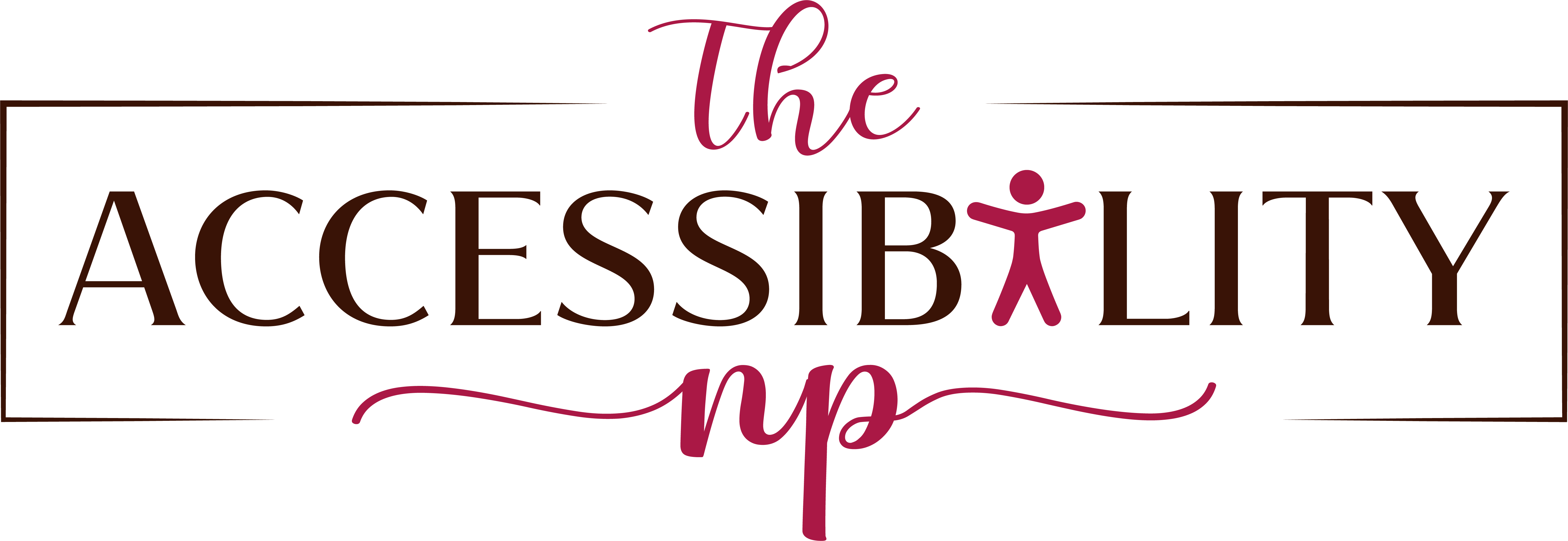Summer is often sold as a time to get out, explore, and make memories that last a lifetime. But for many disabled families, summer can bring just as much fatigue as the school year—sometimes more. Routines shift. Services pause. Supports change. And somehow, there’s pressure to make it all magical.
But here’s the truth: rest is part of access.
Rest is part of survival.
And more than that—it’s part of joy.
This week’s blog is a gentle reminder that rest isn’t something that must be earned. It’s something every disabled family deserves.
Letting go of “always-on” expectations
There’s this subtle pressure to “make the most of summer.” People ask about vacation plans, camps, or what fun is lined up for the kids. But for many disabled families, even simple outings require planning, accommodations, and backup plans.
And sometimes—there’s just no energy left.
That doesn’t mean anything is wrong. It means real life is happening. Life that includes caregiving, decision-making, co-regulating, advocating, coordinating, and troubleshooting—often all before noon.
Rest isn’t laziness or avoidance. It’s a necessary part of living and caregiving within disability.
What rest actually looks like
Rest isn’t always naps and quiet rooms. Sometimes rest is:
– Saying no to another appointment
– Letting screen time stretch a little longer
– Choosing takeout and calling it a win
– Avoiding the social event that feels more draining than joyful
– Giving up on the structured activity and doing something soothing instead
Rest is about releasing the need to perform or produce. It’s reclaiming space to breathe, reset, and exist without constantly adapting to meet someone else’s schedule or comfort.
For disabled families, rest is one of the few things that can’t be outsourced or scheduled for “later.”
Disabled children need rest, too
The push for constant engagement often overlooks the very real physical, emotional, and sensory exhaustion disabled children face. Rest supports regulation. Rest allows for recovery. Rest gives space for communication and connection to happen at a pace that feels safe.
That might look like:
– Time alone doing something familiar
– Repeating the same favorite activity for comfort
– Spending the day inside without pressure
– Choosing silence over socializing
– Moving at their own pace without constant correction
Rest doesn’t mean nothing is happening. A regulated nervous system is doing meaningful work. And when a child feels safe enough to rest, that’s a reflection of a supportive environment.
Rest is access
We often think of accessibility in terms of physical space or technology. But rest is also part of what makes environments usable, relationships sustainable, and experiences meaningful.
Access includes:
– Having downtime built into schedules
– Honoring when someone is overstimulated and needs to pause
– Not requiring output or participation for connection
– Making space for rest without framing it as a setback
A rest-friendly home, classroom, or support plan is an accessible one.
The myth of falling behind
Many caregivers worry about regression over the summer. The fear of “losing skills” or “falling behind” is real—and often reinforced by systems that prioritize progress over peace.
But the truth is: rest doesn’t erase progress. Rest makes it possible.
Rest supports retention. Rest improves regulation. Rest allows space for processing. And rest is part of long-term well-being.
Disability isn’t a race. There’s no single path or timeline. Choosing rest now doesn’t mean someone won’t grow later—it means they’re being supported in a way that values their full humanity, not just their output.
Micro-rest: The tiny resets that matter
Rest doesn’t always mean hours of sleep or whole days off. Sometimes it’s five quiet minutes while someone plays with water beads. Sometimes it’s drinking coffee without talking. Sometimes it’s letting a moment pass without fixing it.
Here are some micro-rest ideas that can be worked into a busy or unpredictable day:
– Sit on the floor and stretch while someone else plays
– Pause for three slow, intentional breaths
– Step outside for a moment of air
– Let a non-urgent task wait
– Dim the lights and lower the sound—even briefly
– Allow repetition instead of redirecting it
Small moments can build resilience. They’re valid, even if they don’t look like traditional self-care.
Building rest into the rhythm
It helps to plan for rest instead of saving it for when exhaustion hits. This might mean:
– Naming rest as part of the routine (“quiet time” or “reset time”)
– Including rest visually in schedules or communication tools
– Creating a dedicated calm space, no matter how small
– Offering rest as a choice, not just a consequence of overload
– Making sure rest is accessible even during transitions, not just at home
Rest doesn’t have to be earned by productivity. It should be part of the foundation, not the reward.
For caregivers and professionals: You are not a machine
This part is important.
If you’re a caregiver, educator, therapist, or support staff, and you’ve been taught to prioritize goals over gut feelings, outcomes over energy, or compliance over compassion—please know:
You are allowed to rest, too.
You don’t have to run on empty to prove your dedication.
You don’t need to say yes to everything to show you care.
You don’t need to fix everything for your support to be meaningful.
Showing up rested—wherever possible—is one of the best ways to keep showing up.
When rest is resisted
Sometimes rest is hard to accept—especially when the world praises “busyness.” And for families navigating behavior plans, service gaps, and mental health challenges, slowing down may feel like losing control.
But often, rest gives back what urgency takes away.
Clarity. Connection. Capacity.
Even if it doesn’t feel easy. Even if you have to schedule it. Even if all you can manage today is doing less—that counts.
Something to carry into the week
Rest is part of accessibility.
It’s part of parenting.
It’s part of caregiving.
And it’s part of what sustains us through the long stretches of unpredictability.
You don’t have to fill every moment. You don’t have to meet every milestone this summer. You don’t have to run faster to keep up. You get to move slower. You get to say no. You get to rest.
Next week’s post will focus on toileting, transitions, and travel—because yes, even the messy parts of summer deserve space and support.
Until then: may rest come easy, guilt-free, and often.

